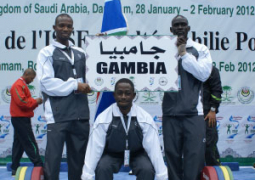All of these awards are credible because of the calibre of the judges that administer them. Because the judges are well-established writers and literary critics, they almost always make choices that are often indisputable. Specifically in the case of the Caine Prize, successive winners, and even nominees, have gone on to great writing careers all around the world. Helon Habila and Binyavanga Wainaina are just two examples.
This is therefore the challenge that faces the organisers of the Chancellor Literary Award. They have to take their time to select judges whose renown will confer legitimacy and credibility on the award. They could be tempted to take the path of least resistance by choosing some familiar names in town. But such a move will discredit the award altogether, as claims of nepotism are likely to flare up.
The Chancellor Literary Award, as it is conceived, is meant to foster excellence in artistic articulations in The Gambia. As a result, entries should be scrutinised with a view to getting only the best to be recipient of the award. Where none of the entries is deemed to be of literary merit and aesthetics, the panel of judges should feel free to reject all of them and wait until another year.
The award must not begin by celebrating mediocrity by honouring run-of-the-mill writers. Any entry chosen for the final prize must be world-class so that the award itself can be taken seriously. When this is done, the Chancellor Literary Award will be seen as a reward for excellence; not as a means of compensating some people who have rendered certain assignments for some vested interests. There are so many of such dubious awards in the world today, given to errand boys or girls of groups with a specific agenda to promote.
"Literature and butterflies are the two sweetest passions known to man."
Vladimir Nabokov


